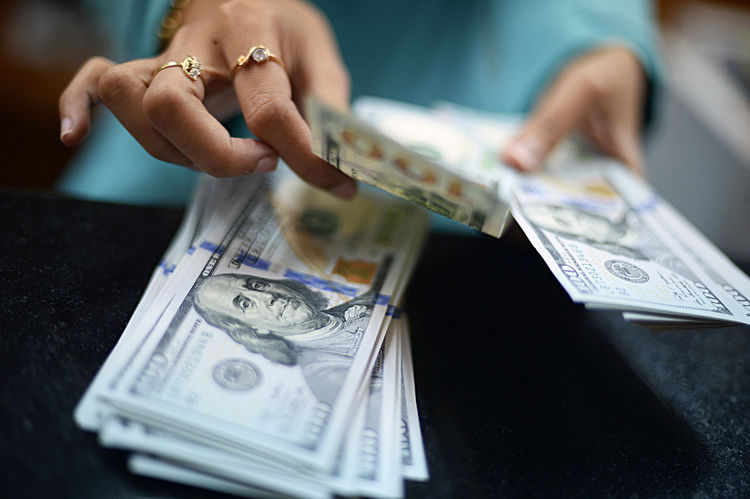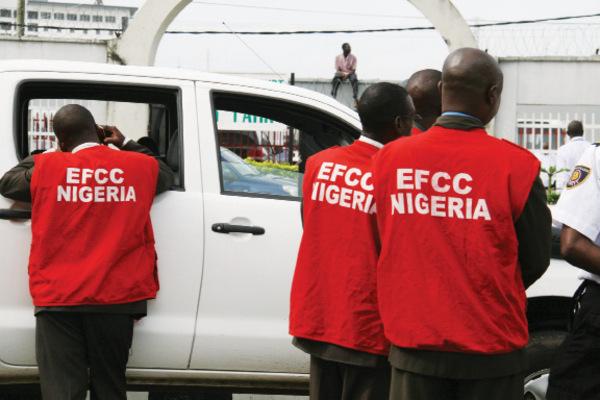- Forex Transactions on Investors & Exporters Window Hit $7.62bn
The total turnover of forex transactions on the Investors and Exporters window stood at US$7.62 billion as at August 11, a report has shown.
The increase, according to the monthly analysis by FSDH Merchant Bank Limited, has been consistent since April 2017.
They projected that the turnover in August 2017 would also be higher than that of July 2017.
The report pointed out that the implementation of the Investors’ and Exporters’ Foreign Exchange (FX) window has increased the supply of foreign exchange into the Nigerian economy.
In addition, it has attracted more investments into Nigeria.
“Consequently, we observed relative stability in the foreign exchange market. Companies and individuals are now able to access more foreign exchange in the market than before to carry out eligible transactions and economic activities are gradually picking up,” they added.
The Central Bank of Nigeria (CBN) introduced the special window for investors, exporters and end-users of forex on April 21, 2017 as part of its efforts to deepen the forex market and accommodate all forex obligations.
According to the CBN, the objective of the window is to increase liquidity in the forex market and ensure timely execution and settlement of eligible transactions.
The eligible transactions in the window are: invisible transactions such as loan repayment, capital repatriation, management services fees, consultancy fees, software subscription, technology transfer agreements, personal home remittances and any other eligible invisible transactions.
Another one is the Bills for Collection as well as any other trade-related obligations (at the instance of the customers).
The CBN stipulates that the supply of foreign currency to the window shall be through portfolio investors, exporters, authorised dealers and other parties with foreign currency to exchange to naira.
The CBN is also a market participant in the window to promote liquidity and professional market conducts.
“The introduction of the window has encouraged exporters to bring back their export proceeds to the country and through the official sources, thus increasing the stock of foreign exchange in the country. “Another important gain of the window is that it has attracted more foreign capital into Nigeria for various forms of investment.
“Our analysis of the capital importation data from the CBN between January and May, 2017 shows that there was a growth in capital importation in 2017 compared with 2016.
“The total capital importation in the five months ended May 2017 stood at US$2.09 billion representing a growth of 82.78% compared with the US$1.42 billion recorded in the corresponding period of 2016,” it added.
According to the report, Other Investments (OI) – Loans attracted the highest capital of US$886 million between January and May in 2017, followed by Foreign Direct Investment (FDI) – Equity of US$436 million and closely followed by Foreign Portfolio Investment (FPI) – Equity of US$413 million.
The report also revealed that capital imported into Nigeria increased significantly from US$244 million in March to US$563 million in April 2017, following the commencement of the programme.
The increased supply of forex led to an appreciation in the value of the naira as in the parallel market, the value of the naira appreciated by 7.87 per cent from N396/US$ on April 25, 2017 to N367.50/US$ as at August 11, 2017.
At the I&E window, the naira gained 2.82% from N374.96/US$ on April 25, 2017 to N364.78/US$ as at August 11, 2017. In the inter-bank market it also gained 0.1 per cent from N305.9/US$ on April 25, 2017 to N305.65/US$ on August 11, 2017.
“Although we commend the initiative and note the gains the Nigerian economy recorded since its implementation, we believe that the gains could be short-lived in the absence of complementary measures that will improve the competitiveness of the Nigerian economy.
“There is the need for concerted efforts to improve physical and human infrastructure in order to increase local production to meet local consumption and boost exports to generate diversified foreign exchange earnings,” it stated.
CBN Governor, Mr. Godwin Emefiele, had told Arise TV that the I & E window was opened up for more and more people who are interested.
“That was why we introduced the I & E window. We said if you wanted forex, you can go to that market and buy it once it fits the pricing structure of the goods or whatever you want to do.
“And that has helped to some extent in complementing the flow of forex into the market and has resulted in the appreciation that we have seen. It is the market that determines the direction of the exchange rate,” he had said.


 Naira4 weeks ago
Naira4 weeks ago
 Naira3 weeks ago
Naira3 weeks ago


 Naira4 weeks ago
Naira4 weeks ago




 Naira3 weeks ago
Naira3 weeks ago
 Commodities4 weeks ago
Commodities4 weeks ago


 Sport Business4 weeks ago
Sport Business4 weeks ago


 News3 weeks ago
News3 weeks ago


 Banking Sector4 weeks ago
Banking Sector4 weeks ago























